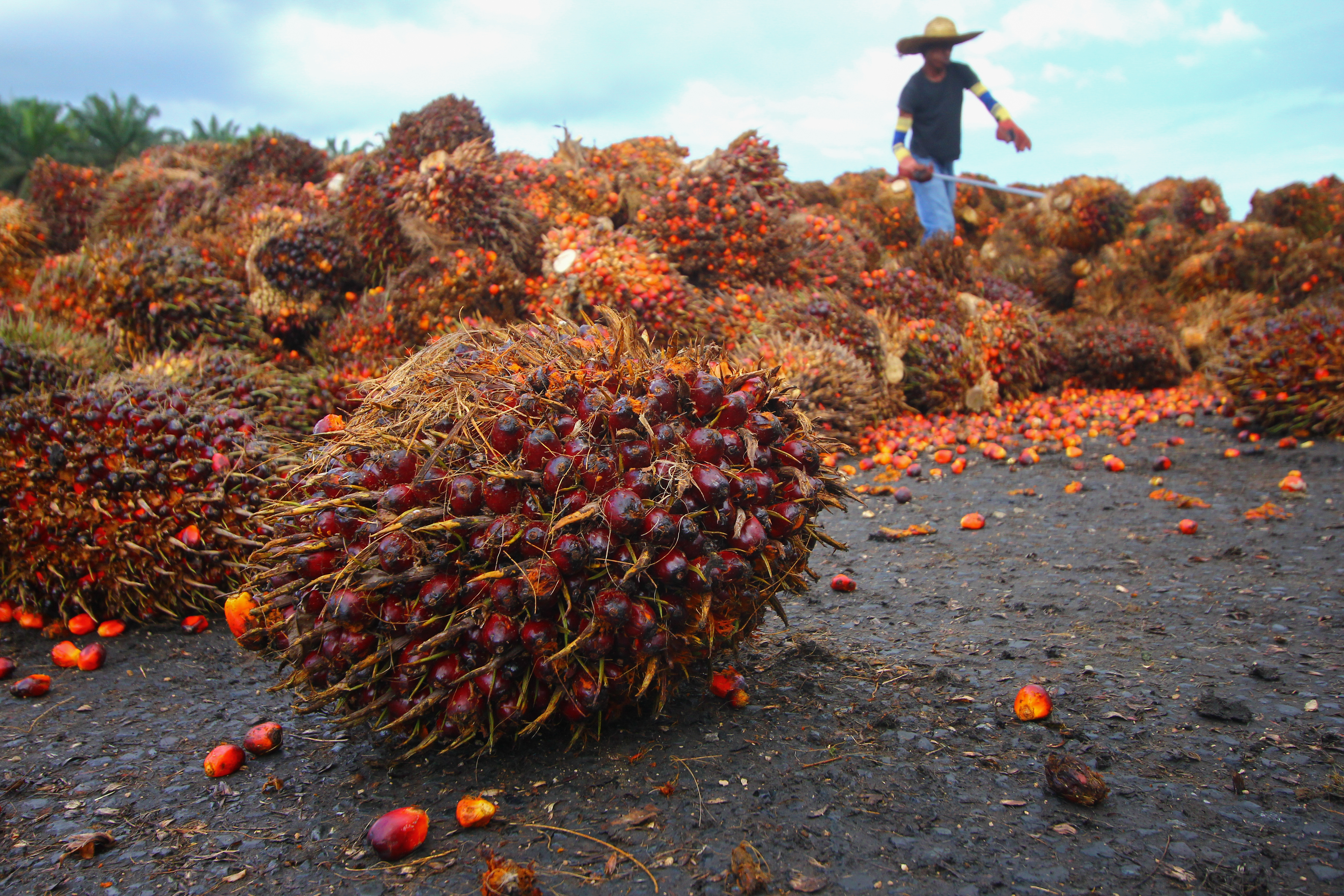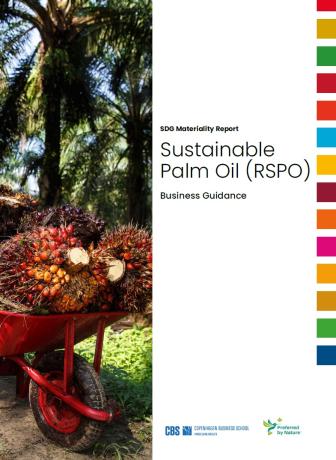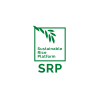What is RSPO?
The Roundtable on Sustainable Palm Oil (RSPO) is a not-for-profit, multi-stakeholder initiative that has developed global standards for responsible palm oil.
To minimise the negative impact of palm oil cultivation on the environment and communities, RSPO has developed a set of environmental and social criteria. Companies must comply with these requirements to produce Certified Sustainable Palm Oil (CSPO).
Palm oil producers are certified through strict verification of the production process to stringent RSPO Principles & Criteria for Sustainable Palm Oil Production by accredited certification bodies. RSPO Principles and Criteria are developed and revised every five years. The standard setting process is done following best practices as stipulated by ISEAL.
RSPO unites various stakeholders from across the palm oil industry and has a wide network of members from countries that produce or use palm oil. They are companies along the palm oil supply chain that have committed to produce, source and/or use sustainable palm oil certified by the RSPO.
As a Certification Body for RSPO, Preferred by Nature can support you in your RSPO certification journey.
>> Learn more at the RSPO website
RSPO Supply Chain Certification
RSPO certification demonstrates your commitment to source and deliver responsible palm oil. If your organisation produces, trades or uses responsible palm oil, then RSPO Supply Chain Certification (SCC) is for you.
All organisations that are part of your supply chain and use RSPO-certified responsible oil products, will need to be audited to prevent overselling and mixing palm oil with conventional (or non-sustainable) oil palm products. These organisations can claim the use of RSPO-certified products “on pack” by using the RSPO Trademark.
In the case of the Mass Balance model, the system allows for the mixing of RSPO and non-RSPO-certified oil palm products at any stage in the supply chain provided that overall site quantities are controlled. Certified oil palm products delivered to the end user under the Mass Balance supply chain model will be traceable to a list of RSPO-certified mills.
If the RSPO rules are broken, the RSPO certification can be withdrawn at any time.
>> Download our info sheet
RSPO Principles and Criteria (P&C) Certification
The 2018 RSPO P&C Standard is a comprehensive framework of principles and criteria that palm oil producers must adhere to in order to achieve sustainability. This certification is specifically designed to prevent palm oil production from causing harm to the environment and society, addressing critical issues such as deforestation and social injustices.
The RSPO P&C certification encompasses a wide range of aspects within palm oil production, including environmental conservation, social welfare and ethical practices, making it a pivotal tool in advancing sustainability within the palm oil industry.
>> Download our info sheet
RSPO Independent Smallholder (ISH) Certification
The 2019 RSPO ISH Standard is relevant for small-scale palm oil producers managing relatively compact plantations. This certification recognises and supports the sustainability efforts of independent smallholders, ensuring that their palm oil production adheres to stringent environmental and social responsibility standards.
This certification not only helps smallholders access markets that demand sustainable palm oil but also contributes to the broader goal of responsible palm oil production and its positive impact on both people and the planet.
>> Download our info sheet

5 benefits of choosing RSPO certification
Environmental and community protection. RSPO addresses concerns about palm oil harming the environment and society. With RSPO certification, you assure customers of your commitment to conserving the environment and supporting local communities.
Access to new markets and customers. Leading manufacturers commit to responsible palm oil and prefer traceable supply chains. Demand is rising, with markets like Europe aiming to import only certified sustainable palm oil (CSPO).
Enhanced visibility and branding. RSPO certification showcases your dedication to responsible palm oil production, reducing negative impacts.
Improved quality and management. Certification often brings unexpected benefits, like cost savings and improvements to supply chain management, traceability and transparency in your supply chains.
- Joining a member-driven organisation. As an organisation powered by its members, RSPO regularly publishes reports that delve into the details of consumer adoption and the uptake of CSPO.
RSPO certification process
Kickstart your certification journey by completing our service request form or reaching out to us directly. Our experts will navigate you through the certification scope that aligns best with your company setup and needs. The process outlined below covers RSPO Supply Chain, RSPO Principles and Criteria (P&C) and RSPO Independent Smallholder (ISH) certifications.
Step 1: Application process
Begin by signing the certification agreement with Preferred by Nature and becoming a member of RSPO. Preferred by Nature will appoint a staff as your contact person.Step 2: Certification preparation
Prepare by complying with certification requirements. This involves assigning responsibilities within your organisation, developing chain of custody procedures, and providing staff training.Step 3: Assessments
RSPO audits are conducted on-site. Audit duration varies based on your operation’s scope, complexity and sites. Activities include interviews, document reviews, plantation visits, facility observations, and volume accounting system checks.Step 4: Audit report
Our knowledgeable RSPO SCC auditors will prepare an audit report which is peer-reviewed by competent professionals within Preferred by Nature, who will take the certification decision.Step 5: Earning certificate
Upon certification approval, we will submit the audit report and draft certificate to RSPO for approval. Following RSPO’s approval, you will receive your certificate and your annual license will be activated in the RSPO database.
RSPO certificates remain valid for five years, provided you successfully pass annual audits and adhere to all relevant RSPO requirements within the annual license timeframe. Upon the certificate’s expiration, a re-assessment is necessary for renewal.
Complaints and resolutions
If a complaint is raised about our certification services or one of our clients, we handle this in accordance with our Dispute Resolution Policy. We may call on our Impartiality Committee if Preferred by Nature’s impartiality is under question.
RSPO Supply Chain Certification
Below are some of the key choices available regarding the scope of an RSPO supply chain certificate. Don’t worry if this feels overwhelming for you - our team can help you identify the type and scope of certification that best matches your needs.
- Supply chain model: You need to choose among three distinct supply chain models used for RSPO supply chain certification: Identity Preserved, Segregation or Mass Balance. This is closely linked to your company set-up, including whether you will need to mix certified with non-certified material or not. You may need to select more than one system, depending on the complexity of your production and trade.
- Book and Claim: The fourth supply chain model, not for producers, is the Book and Claim model. No certification is required for this model, but users need to show that they are compliant with the rules of the RSPO book and claim system. In addition, the claims they make need to be in accordance with the published RSPO rules on market communications and claims.
If your organisation manages facilities in two or more sites, you may be eligible for multi-site certification which will reduce the total cost of certification.
- Single: This is an entity that administers only one site. The CoC certificate is for one entity.
- Multi-site: This is a certification option for a group of sites that have a contractual link, a defined Central Office and a minimum of two participating sites.
- Group: Supply chain group certification offers an option for RSPO supply chain certification whereby the direct costs are shared between the eligible members of a group.
RSPO Principles and Criteria (P&C) Certification
The RSPO standard sets out general requirements for sustainable palm oil production practices. However, specific criteria within the RSPO P&C standard may vary depending on the activities carried out at each site. For example, certain criteria like long-term economic and financial management plans may not apply to smallholders who supply palm oil mills.
National Interpretations and Normative Documents
RSPO P&C National Interpretation and RSPO ISH National Interpretation are used when endorsed by RSPO. In cases where these interpretations are not endorsed, the latest RSPO P&C version is used for audits.
Depending on the scope of the audit and the specific activities involved, other normative documents may also apply. These documents include the RSPO Supply Chain Certification Standard (relevant for milling operations), the new planting procedure (NPP), and group certification.
The RSPO standards capture relevant, impactful and implementable requirements which are collectively discussed and agreed upon by the seven categories of its multi-stakeholder membership base.
RSPO standards provide the aims, objectives and mandatory requirements for the production and procurement of RSPO Certified Sustainable Palm Oil (CSPO).
The RSPO standard must be revised every five years. The review process includes at least one round of public consultation of at least 60 days. The RSPO Standards and supporting documents are developed through a comprehensive, consensus-driven, and transparent process, which includes feedback from the general public and contributions from interested stakeholders through a public consultation.
Access the current standards here:
Info sheet

RSPO Supply Chain Certification Info Sheet
An infosheet covering information on the RSPO Supply Chain programme.
An infosheet covering information on the RSPO Supply Chain programme.

RSPO Principles and Criteria (P&C) & RSPO Independent Smallholder (ISH) Certifications Info Sheet
The RSPO P&C certification serves as a cornerstone for responsible palm oil production. It establishes a comprehensive framework of principles and criteria that palm oil producers...
The RSPO P&C certification serves as a cornerstone for responsible palm oil production. It establishes a comprehensive framework of principles and criteria that palm oil producers...
Procedure

Sample RSPO Supply Chain Certification Procedures
You may use this document for inspiration on how to develop and structure your own company-specific RSPO Supply Chain Certification (SCC) procedures. Please be aware that this is ...
You may use this document for inspiration on how to develop and structure your own company-specific RSPO Supply Chain Certification (SCC) procedures. Please be aware that this is ...
Report

SDG Materiality Report - Sustainable Palm Oil (RSPO)
This SDG Materiality Report represents an important tool for businesses who wish to support the sustainable palm oil transition. The Report translates the support of sustainable p...
This SDG Materiality Report represents an important tool for businesses who wish to support the sustainable palm oil transition. The Report translates the support of sustainable p...
Get in contact with us
Our experts are ready to support you on your sustainability journey.





















